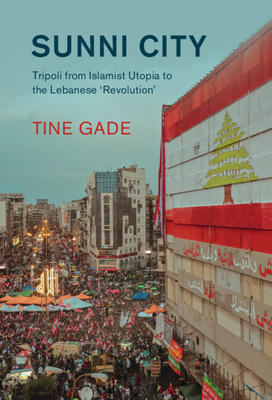Sunni City: Tripoli from Islamist Utopia to the Lebanese 'Revolution'

Sunni City: Tripoli from Islamist Utopia to the Lebanese 'Revolution'
Tripoli, Lebanon's 'Sunni City' is often presented as an Islamist or even Jihadi city. However, this misleading label conceals a much deeper history of resistance and collaboration with the state and the wider region. Based on more than a decade of fieldwork and using a broad array of primary sources, Tine Gade analyses the modern history of Tripoli, exploring the city's contentious politics, its fluid political identity, and the relations between Islamist and sectarian groups. Offering an alternative explanation for Tripoli's decades of political troubles - rather than emphasizing Islamic radicalism as the principal explanation - she argues that it is Lebanese clientelism and the decay of the state that produced the rise of violent Islamist movements in Tripoli. By providing a corrective to previous assumptions, this book not only expands our understanding of Lebanese politics, but of the wider religious and political dynamics in the Middle East.
Descrierea produsului
Tripoli, Lebanon's 'Sunni City' is often presented as an Islamist or even Jihadi city. However, this misleading label conceals a much deeper history of resistance and collaboration with the state and the wider region. Based on more than a decade of fieldwork and using a broad array of primary sources, Tine Gade analyses the modern history of Tripoli, exploring the city's contentious politics, its fluid political identity, and the relations between Islamist and sectarian groups. Offering an alternative explanation for Tripoli's decades of political troubles - rather than emphasizing Islamic radicalism as the principal explanation - she argues that it is Lebanese clientelism and the decay of the state that produced the rise of violent Islamist movements in Tripoli. By providing a corrective to previous assumptions, this book not only expands our understanding of Lebanese politics, but of the wider religious and political dynamics in the Middle East.
Detaliile produsului












